Learning and Mentoring Never Stops with Educator Angelo Pappas
by Alexander Billinis
How does a regular guy get 250 people to his half century birthday party on Thanksgiving weekend? I guess that the answer is, you are a guy like Angelo Pappas.

Athena and Angelo Pappas
Evangelos (Angelo) Pappas is a regular guy, very New York, and very Greek. The son of a Lamia-born father who left a good job as a police sergeant in Karpenissi, Greece to follow the woman he loved, Angelo’s Karpenissi-born mother, to America, Angelo grew up in a typical striving Greek immigrant family of the times. Angelo’s father, Evrimahos’ “pathway to America was in a pushcart.” Like so many Greek immigrants in the late 1960s and 1970s, this pushcart vendor built homes, educated children, cared for loved ones back in Greece, as well as opened the “paths” for others to make it in America. The pushcart business opened up the opportunities of this great country. The first time I went to New York, as a boy in the 1970s, my father talked about these cart vendors and spoke reverently how they made the American Dream possible for so many.
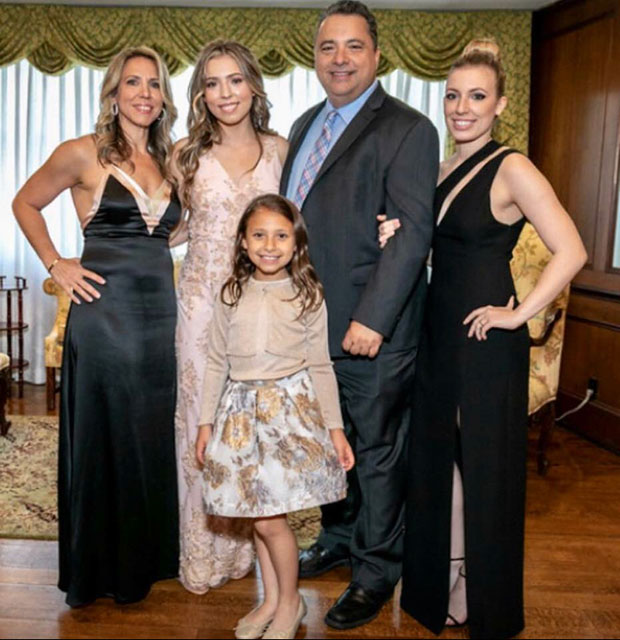
The Pappas family: from left, Athena (wife), Victoria, Angelo, Eleni and Paige
From a pushcart start, the elder Pappas got into the pushcart supply and distribution business and brought his brother in as a partner. The eldest, Angelo spent most of his childhood in the care of his grandmother, and he did not speak functional English until the 3rd grade. “I was at the back of the class, along with another kid who looked like me, I think he was from Yugoslavia and he didn’t speak English either.” It gave Angelo an empathy for the immigrant and a frame of reference that served him well in later life.

With my Father in-law Peter Vorillas and sister in-law Stacey Vorillas
The family prospered and moved from Flushing in Queens to Whitestone and Angelo graduated from Bayside High School in 1986. “If you were getting financially comfortable and Greek, you moved to Bayside and bought a Cadillac,” he said, somewhat tongue in cheek.
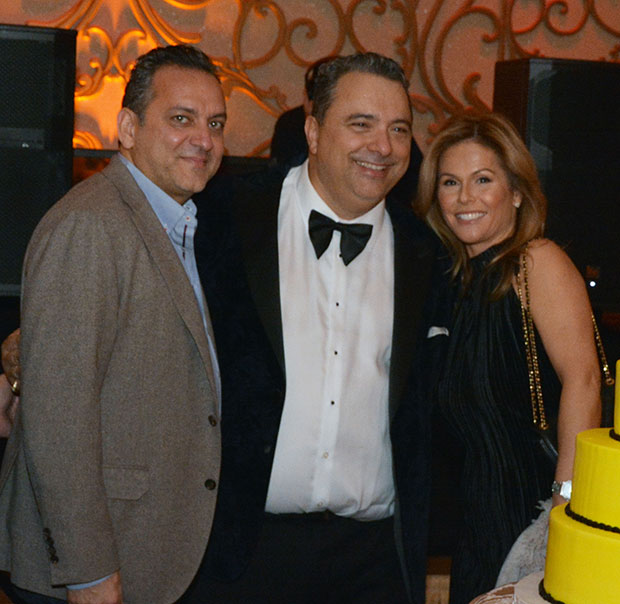
With Marilena and Niko Katopodis
After graduating high school, Angelo enrolled in St. John’s University, but the allure of the family business was strong, the business distributorship grew and there was a lot of money to be made, so he threw himself into the business. In his mid-20s, however, he realized that he was missing an education and perhaps a different calling in life, and his wife Athena encouraged him to go back to school.
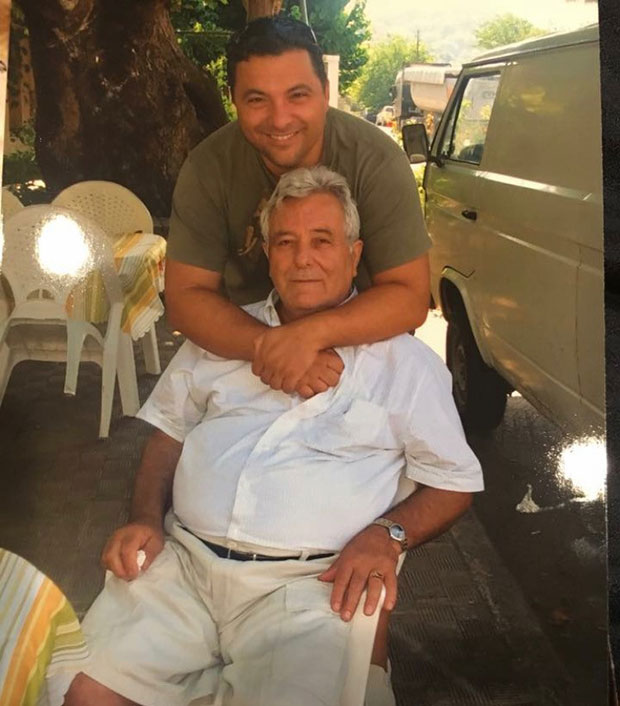
Angelo with his late father Evrimahos Pappas
“I always loved history in high school, I love the stories, and if you love stories, how could you not love history,” he says, a voice heavy on the Queens and Long Island, with perhaps a discernable trace of Greek left over from a monolingual childhood. While he was going through school, several friends who were teachers encouraged him to try out teaching.
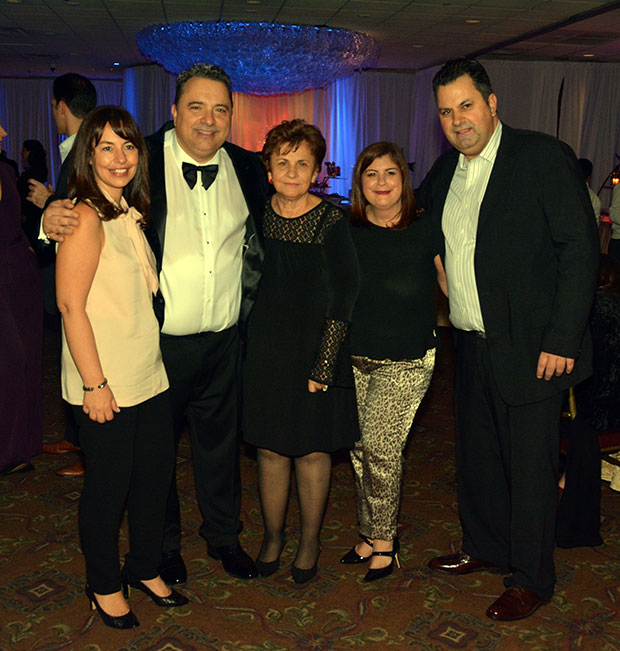
Angelo with siblings Kali Gabriel, Dina Skokos and Chris Pappas and mother Vasiliki Pappas
“I have always been fortunate to have very good friends. There were always people looking out for me, keeping me out of trouble, guiding me.” So it was with teaching, though he started as a young husband with his first born daughter (Victoria), and when his first paycheck came—a far, far cry from what he previously made—”I was shocked,” he said, and he immediately apologized to his hardworking wife for the reduced income. “But she told me not to worry, ‘I’ve never seen you so happy’,” he said, clearly emotional about the subject. Angelo’s father, too, supported the move, saying that he did not want his son turning forty, hating his life, and blaming his father. Not just them, but the whole family, and his in-laws and others, supported his decision and helped to make it work for the family.

With closest friend Lee Pirone
Angelo repeatedly said that people have always had his back and gave him good advice. Even his friends who were the so called “bad kids” would tell him not to go here or there—“It’s not for you,” they would tell me. People look out for Angelo, and he looks out for them, whole classes of them.
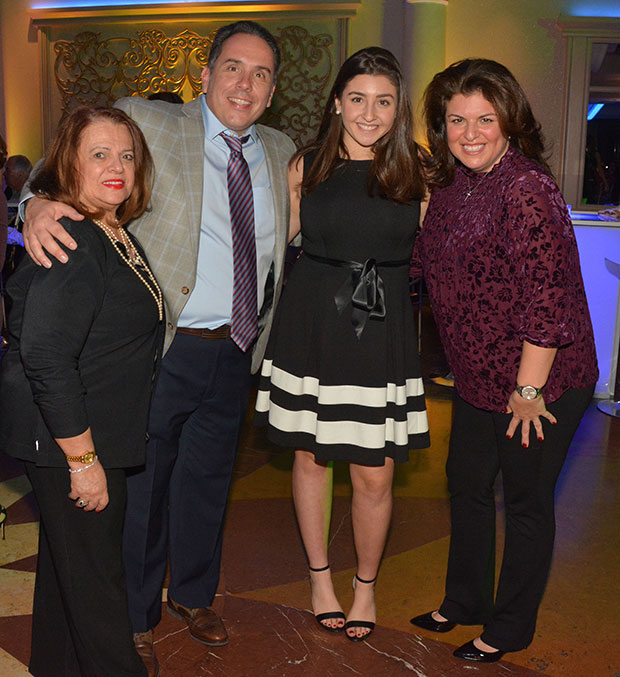
From left, Cecil Ktena, John, Lea and Maria Frankis
So, he started teaching relatively late, at age 30. He started out at Flushing High School, where he quickly realized how challenging the teaching profession was going to be. After his first year, he eventually ended up at Grover Cleveland High School, in Ridgewood, Queens. Angelo describes Grover Cleveland as his “second home” and feels “blessed to work with such a supportive Administration and Staff.” Angelo continues, “My colleagues have become part of my family, they are dear people who have always advised or assisted me in educating our children.” It is an Angelo theme—people support him, and he supports in turn. A positive feedback loop in an era where all too often the opposite is the norm.
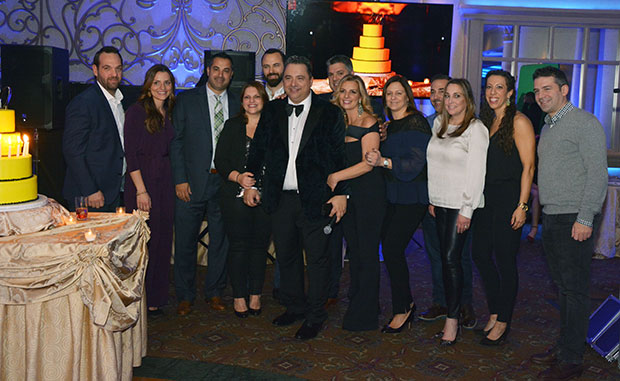
Angelo with his cousins
A warm-hearted guy, Angelo who is also part of the Deans Office, clearly loves the subject of his job. He teaches global history, and he prides himself on the ability “to do well with students who are resistant to learning.” He cites many different reasons why this happens. “Many of our students face outside challenges, some come from broken homes, immigrant status, financial hardships, or drugs. Whatever the reason, somehow learning stops for these kids, and there are thousands of them.”
“Learning stops.” Saying this, Angelo stops, pausing, he lets you know that such a condition is unacceptable, he won’t accept it, and his voice almost carries a challenge to the rest of us—we should not accept it either.
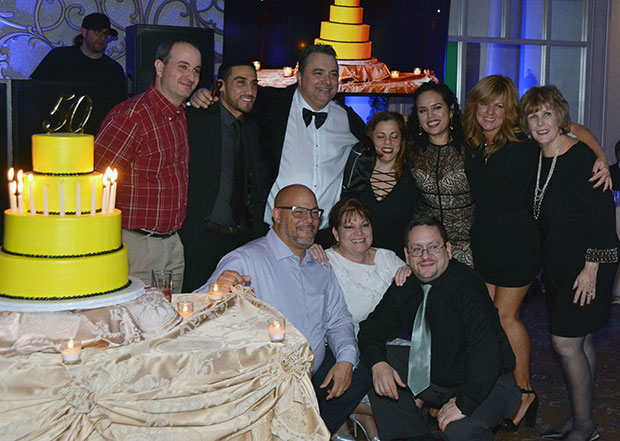
Angelo with his work family – The Achieve Now Academy: Tony Cipolla, Pablo Ocampo, Paula Levine, Lissette Salas-Ocampo, Robin Bentvena, Alice Gluszak, Kneeling – Michael Irizary, Eileen Norris and Dennis Merced
How does he reach them?
“I teach like I am having a conversation, like we are in a café.” Sounds like a Greek, I think to myself. He says that this interactive conversational style draws the students out, and his stories of history then become their stories. He can empathize with so many people in multiple ways. “I teach a lot of ESL (English as a Second Language) Students, and I know what it’s like, because I was one myself.” His students are literally from all over the globe. There is clearly a respect and engagement on his part with students, and they “feel” this. He is also a dean at the school and he has been involved with any student related crisis you can imagine, from violence, to drugs, gangs, runaways. This is as much a calling to him as a job, you can feel it. Sometimes, it seems as if he is in fact saving people, because he is.
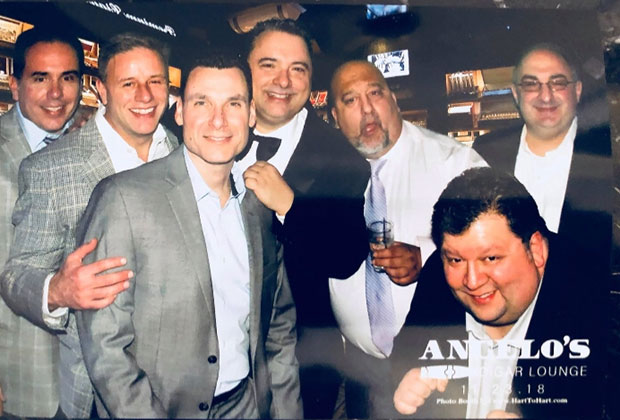
With childhood friends who remain very close: from left John Frankis, Lee Pirone, John Papadapoulos, Jerry Dakis, Ross DiMaggio and George Dakis
The kids clearly feel that in Angelo or “Pappas” they have an advocate—and they remember him, even years later. “Hey Papp,” they call out, “guess what, I am now a licensed electrician.” Or “I just finished college, just like you told me to do.” Or, “I took your advice, joined the union, and now I am an elevator repairman.” All these things give people hope, a paycheck, and a chance, and it starts in school. “Finish high school, no matter what,” he says. Clearly there is no greater joy to him than to have been the guy who made the difference, maybe because so many people had been there for him to make the difference.
Married for over 22 years to his Greek-American wife Athena, of tough but kind Spartan background, he is a devoted family man to his wife and three daughters, Victoria, Eleni and Paige ages 21,16, and 10. The family all are active members of Archangel Michael Church in Port Washington, New York, and Angelo coaches basketball and volleyball. He started coaching with his eldest daughter and continues the “tradition” with his youngest. His daughters are not the only ones benefiting from having their dad around. He is known as “the winningest coach around,” though he insists this is just a tall tale. Apparently, his record suggests otherwise, and he emphasizes that it’s not due to any inordinate coaching talent or sports skill. He self-deprecatingly calls himself “a rather big guy,” but somehow his teams are winners.
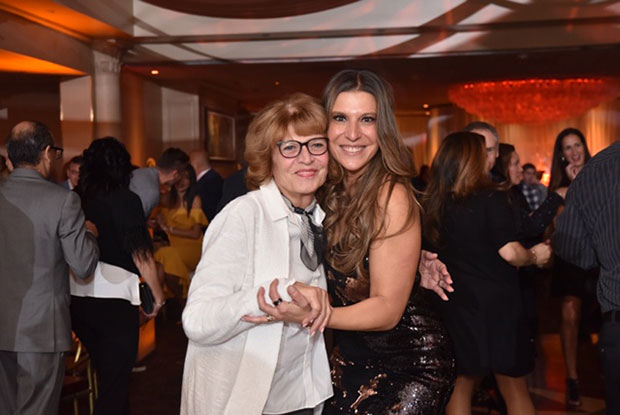
Angelo’s mother In-Law Helen Vorillas with sister-in-law Stacey Vorillas
Something is working. I guess it’s incredible luck or a gift, to kati (that something) as we say in Greek, that creates a positive, winning aura around the man. He clearly feels blessed by the support of family and friends, and he reciprocates not out of a sense of obligation, but because he truly feels a buzz from helping others. We need more people in education, in the Greek community, and in America who count their blessings and act on their good fortune to empower others.
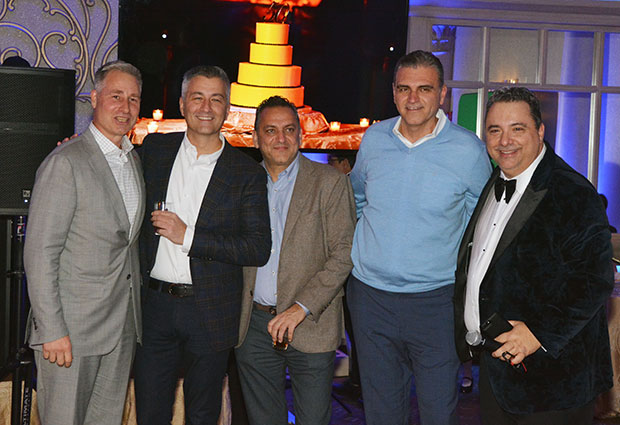
Angelo with close friends John Petras, George Patilis, Peter Nikakis and Niko Katopodis
Angelo is clearly a man immersed in his community, from birth to the present, and he has seen the community evolve and change. His father was of that hardworking generation that worked hard, saved, and paid their kids’ educations while helping them get started. Guys like his father helped friends and family, and other Greeks, and we both agreed that the Greek community needs to have each other’s back more. The community is more prosperous, building on the strong foundations set by our parents, but we still have to look out for one another.

Best Friend from childhood, Dr. John Frankis lighting a candle
Guys like Angelo don’t forget where they come from, because he saw his family’s American Dream as it was being built. He does not take it for granted, and he sees kids every day wanting that same chance, and often lacking the family ties that helped him to make it, so he steps in. He’s a regular guy doing extraordinary things every day.
We all know guys like Angelo. Stand up, quality people, not flashy, not rich, not celebrities. These are the people who raise families and who look out for you, and that’s why 250 people piled into a restaurant on Thanksgiving weekend to help him welcome his next half century.

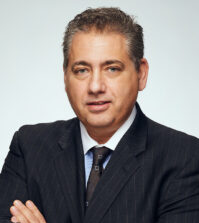
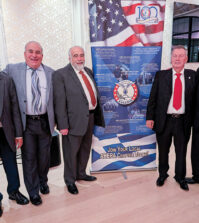
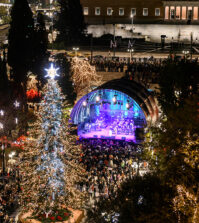











0 comments